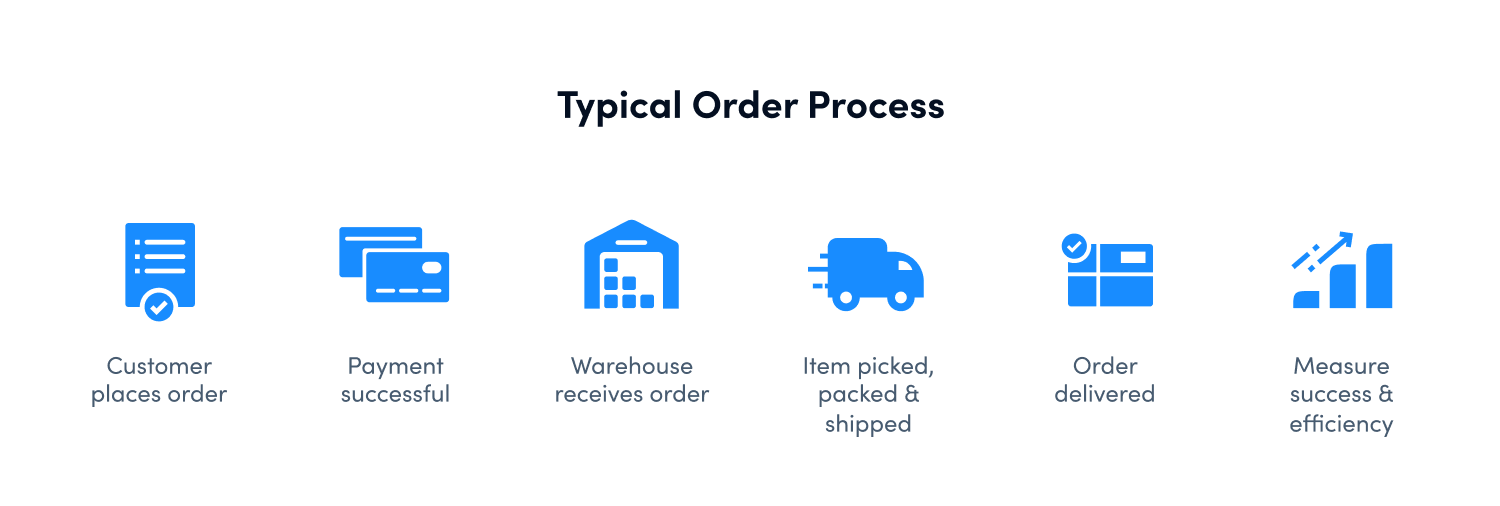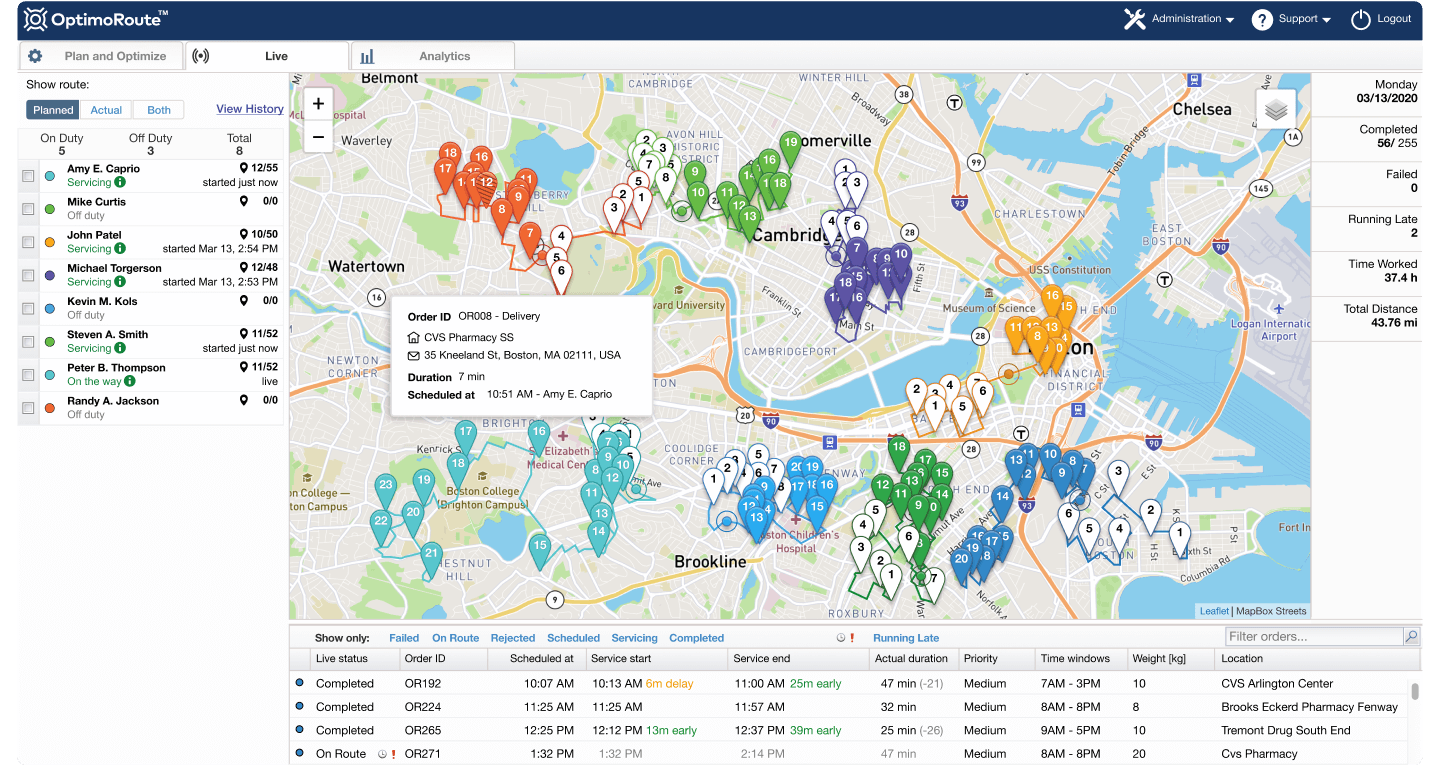Logistics Management 101: How to Optimize Your Business’s Operations

How confident are you in your business’s logistical efficiency? While many companies might think they have a tight rein on business operations, the reality is often the opposite. According to supply chain management and solutions company GEP, 64% of U.S. and European companies lost up to 20% in revenue in 2020 due to logistical disruptions.
Unfortunately, your business could be one of these companies wasting thousands of dollars a year on a logistics strategy that doesn’t work. That’s one reason why it’s so important to understand the weak points in your logistics management and optimize where you can.
A powerful logistics management plan can give you a myriad of benefits that improve your business, such as increasing revenue through lowered costs of operation and reducing the time spent on manual planning. Below, you’ll learn in more detail what logistics management is, what it involves, and ways to improve it in your business.
You can dive into each individual section here:
- What Is Logistics Management?
- 8 Common Tasks Included in Logistics Management
- The 7 Rights of Logistics Management
- 5 Ways to Optimize Your Supply Chain Logistics
- Why Logistics Management Is Crucial for Service and Transportation-Based Businesses
What Is Logistics Management?
Logistics management is the process of planning, implementing, and overseeing a supply chain operation from start to finish, regardless of industry. When your logistics are managed efficiently, you have a higher chance of optimizing your system for storing, shipping, tracking, and delivering goods or services to other businesses or consumers. This process can, in turn, improve your revenue and bottom line.
Logistics management is often divided into inbound vs. outbound logistics. Inbound logistics refers to processes involved with acquiring goods and materials, while outbound logistics refers to the process of delivering goods to customers.
Dozens of industries around the world rely on logistics to run their businesses smoothly, including those in postal work, ecommerce, foodservice delivery, field services, telecommunications, manufacturing, medical, and pharmaceutical. In fact, the logistics industry is so large, Allied Market Research predicts the global logistics market will reach nearly $13B in value by 2027.
The 7 Rights of Logistics Management
In the supply chain industry, there’s a concept known as the 7 Rights, or 7 Rs, of logistics. These fundamental principles help define and inform your decision-making and methodology on logistics. The 7 Rs are:
Right product
Your company needs to understand your market and offer the right product or service in order to attract customers and grow your business. Having the right product for your business also means you’re better able to process, handle, and manage these items within your larger logistics management plan.
Right quantity
It’s also essential to have the right quantity of your products or services available so you can keep your supply chain flowing properly. On a more granular level, you also need to send the right quantity of items for each order received.
Right condition
All products you offer must be stored, packed, and transported with consistency from your warehouse or distribution center so they’re delivered in the right condition to your customers. The better you organize your logistics, the more likely your chances of delivering in the right condition.
Right place
In the same way you need to deliver products in the right condition, you must also deliver them to the right place. With a proper logistics management system, your business can not only monitor and identify which employees more frequently deliver to the right place, but it can also use a solution like OptimoRoute to ensure your delivery routes and planning are as efficient and foolproof as possible.
Right time
Depending on your industry, timely delivery of your products or services is crucial to maintaining your business’s reputation and profits. Implementing a tracking system in your logistics planning can help you better understand where your deliveries or service providers are and whether or not they’re delivering or arriving at the destination on time.
Right customer
No matter your industry, you need to understand the right customer (aka target market) for your business. The better you know your customers’ pain points, wants, and needs, the more likely you are to appeal to them and gain leads. While this principle is closely related to business marketing, it’s still vital for logistics so that your business doesn’t set up a supply chain for the wrong market.
Right price
Finally, you need to set the right price on your products or services in order to make a profit and continue to grow your business. A good logistics management system will help you track pricing and expenses over time, as well as record whether or not goods or services were sold at the right price.
When these 7 elements work together cohesively, your business is more likely to have an effective logistics process that eliminates waste and saves money.
8 Common Tasks Included in Logistics Management
In practice, logistics management involves a wide variety of tasks that can streamline your business operations, especially when they’re optimized to work in sync with each other. For example, your company’s logistics planning and management team typically performs these eight common tasks:
- placing and fulfilling orders
- handling return orders (known as reverse logistics)
- Inventory management, control, and forecasting
- storing or warehousing inventory or products
- procurement of handling materials (inbound logistics)
- packaging and labeling products
- Route optimization, efficient delivery, transportation management
- tracking vendors and determining if new ones are needed
- selecting appropriate software and IT solutions

You can learn about other logistical management solutions here.
5 Ways to Optimize Your Supply Chain Logistics

While your business might optimize your logistics differently than another company, some best practices work for all types of businesses in any industry. As such, follow these five top ways to optimize your logistic management and make your business as efficient as possible:
Automate every process you can by choosing the tools or systems right for your business
Automation is key to optimization; it helps you save countless hours of time on tasks that don’t need to be done by hand. The tools you use for this will vary depending on your industry. For example, OptimoRoute is a solution to help you automate route and delivery planning, and you may still need a warehouse management system to keep your business running smoothly. Businesses often use other software such as Enterprise Resource Management (ERP) systems for supply chain management. You can refer to the section above about the types of tools to look for and implement in your company.
Be transparent in internal communications, especially regarding logistics, across teams
The more open and transparent your cross-departmental communications are, the more likely your business will reduce errors in logistical management. You may also learn from your logistics managers and colleagues about new ways to improve your business logistics you may not have thought of before!
Identify errors in your supply chain management to reduce costs associated with them
One of the best ways to optimize your logistics is to eliminate unnecessary costs, which often come from hidden errors in your operations. The right tools and processes, like an audit conducted by your logistics managers or using an operations management system, can help you identify these problems and fix them. For example, OptimoRoute helps you reduce costs associated with incorrect or late deliveries, which you can track and optimize directly within the software.
Consider outsourcing any tasks that will help you save time and money
Similar to automating as many processes as you can, you can also outsource work your company doesn’t have time or expertise for, especially if it will help you scale your business. A great example is if you’re an ecommerce store that outsources packaging your products to free up your schedule and dedicate efforts to making more sales (and more money).
Understand your customers’ wants and needs to better predict sales cycles and deliver a superior customer experience
Finally, remember that your customers’ experience can have a significant impact on the success of your business. As such, it’s important to understand what they want and when they typically buy from you so you can optimize your logistics around the demand. For example, a pool maintenance business is likely to see increased demand during the summer months, so optimizing your logistics management during this time will help you provide customers with the best service possible.
Why Logistics Management Is Crucial for Service and Transportation-Based Businesses

The world of service- or transportation-focused businesses can’t function without a solid logistics management system. Companies like postal services and couriers, field services, telecommunications, and passenger transportation need a way to optimize required routes and schedules properly, or they wouldn’t be in business very long.
That’s why it’s important to have the right solution in place, like OptimoRoute. Our software can help your company:
Save money on overall logistics costs
When your entire routing process is optimized for its most efficient performance, your company will eliminate costs through areas like unnecessary gas expenditures, unapproved working hours, inaccurate routes, real-time tracking, and more. Improving your fuel efficiency also has the effect of improving the sustainability of your business, so route optimization is a key factor in green logistics.
Optimize routes
OptimoRoute provides a thorough system for identifying and creating the best routes available for your business. For example, you can maximize your workforce, required vehicles, miles driven, and more. You can even make last-minute changes to improve or re-plan your routes without affecting others.
Arrive on time, or even better, more quickly
Our software lets you track live routes to ensure vehicles and staff are getting where they need to be at the right time. Powerful analytics help you understand which were late and where you can improve your arrival accuracy.
Reduce manual planning
OptimoRoute offers a variety of features that eliminate the need for you to meticulously plan every part of your logistics by hand. For example, you can plan up to five weeks in advance with just a few clicks of a button, or our software can even pick the optimal dates and times for your tasks and assign them to the right technicians.
Improved Logistics Management Means Better Business and Happy Customers
Logistics management is one of the key ways to maximize your business’s operations and keep your customers happy. When you focus on improving your logistics systems, you’ll not only experience a boost in efficiency and profits across your business, but you’ll also reap the benefits of better customer satisfaction, because your customers are more likely to recommend you to others as well as buy from you again.
If you’d like to see how you can improve your transportation and route planning, why don’t you check out OptimoRoute? We offer a 30-day free trial and cater to almost any business that needs to automate delivery routes and schedules!
Try OptimoRoute™ for Free
No installation or credit card required


